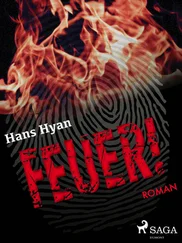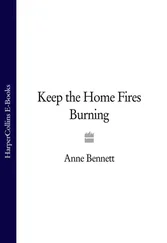A diffidence of knuckles on her door. She had expected him to call when downstairs, but one of her neighbors must have left the front door open, and now he was here, sooner than she’d anticipated, and she was still in her bathrobe. “Wait,” she called out, and grabbed the nearest clothes at hand. Jeans, bra discolored in the wash — for heaven’s sake, what difference did that make? — and fleece-lined sweatshirt.
She opened the door, a little breathless, as self-conscious as on the day she’d offered to walk him upstairs to the coffee counter. There was a slight, spiced scent of aftershave coming off him. Specially for this meeting, or did she usually not see him until late enough in the day that it had worn off?
“Hello,” he said, in a tone that wasn’t unfriendly but more formal than his usual “hey.” Was it because of their last conversation or because she was without a turban? His eyes slipped across her face and beyond it, as if he thought it might be impolite to look straight at her while she was uncovered. She saw him take in the glass and plate in the drying rack, the bare walls, the single bed with its white duvet and sheets.
“It’s nice,” he said. “Uncluttered.” He unbuttoned his coat, the popping sound intimate in the silence of the studio. She wondered if “uncluttered” was a polite word for “austere,” or if he really saw the studio as she had until that moment — a home that made almost no demands on you, allowed you simply to be. Now she wished she’d put a little more care into it, and that the single bed wasn’t so determinedly single.
“Sorry about yesterday,” he said.
“I’m the one who should be saying that. Tea?”
He kicked off his Wellies, and while she was filling the kettle she could hear him walking over to the desk, then a low whistle telling her he’d seen the photograph of Aneeka.
“That’s my sister,” she said.
He turned toward her, photo frame in his hands. The picture had been taken the previous year, soon after the twins graduated. Aneeka was dressed to go out in her favorite ensemble: black knee-high boots, black leggings, and long white tunic, a black bonnet cap accentuating the angles of her face, a scarf of black and white gauze wrapped loosely over it. One hand on hip, jutting her chin in a show of attitude to her twin behind the camera while Isma, elbow resting on her sister’s shoulder, smiled indulgently. How broad her face looked next to her sister’s, how washed-out her features compared to the lipstick-and-mascara enhancements at which Aneeka was so skillful.
“How old is she?”
“Nineteen.” A woman-child, a mature-immature. Isma couldn’t think of any words that would reach her.
He put the photograph down. “Attractive family,” he said. He finally looked straight at her. “You have nice hair.” The remark followed the one before it in going straight to her stomach, but he’d already turned his attention to the other frame on her desk, which contained an Arabic verse, handwritten on lined paper. “And this?”
“It’s from the Quran. La yukallifullahu nafsan ilia wus-ahaa. Allah does not burden a soul with more than it can bear.” When her grandmother died she had found this taped inside her bedside-table drawer.
He looked at her with more pity than she could endure, which he must have seen, because when he spoke his tone was lightly wry: “Here ends the small-talk part of the conversation, then.”
She sat down on her bed, wondering if he’d sit next to her or choose the desk chair several feet away. He did neither, settling himself on the floor instead, knees drawn up to his chest.
“Tell me about your father,” he said.
“I don’t really know what to tell you about him, is the thing. I didn’t know him. He tried his hand at many things in his life — guitarist, salesman, gambler, con man, jihadi, but he was most consistent in the role of absentee father.”
She told him everything as she remembered it, without evasion. The first time her father had abandoned his family she was too young to remember either his departure or his presence before it. So she grew up in a house with her mother and grandparents, unaware that her heart was missing anything. When Isma was eight years old, he reappeared — Adil Pasha, known to his friends as “Pash, short for Passion,” a laughing, broad-shouldered man who delighted in her resemblance to him. Like every woman in his life she quickly fell for his charm, which was so devastatingly effective it gained his readmittance to the marital bed, even though when he first walked through the door her mother overrode her in-laws and insisted he sleep on the couch. He stayed long enough to impregnate his wife with twins and to ensure his daughter found the thought of his ever leaving again unbearable, and then he was gone once more. This time his excuse for going wasn’t a get-rich-quick scheme but an aid convoy to Bosnia, which was then in the final months of war, allowing him to cloak his departure in righteousness. The convoy returned a few weeks later, but he didn’t, and Isma never saw him again.
Every so often a card in his scribbly handwriting would arrive to say how invaluable he was to some fight or other against oppression, or a bearded man would appear at the doorstep with some small amount of money and the name of wherever Pash was fighting — Kashmir, Chechnya, Kosovo. In October 2001 he called. He was in Pakistan, en route to Afghanistan, and had heard of his father’s death. He wanted to speak to his mother, and also to hear his son’s voice. His wife hung up without waiting to find out if he might also want to hear Isma’s voice — the voice of the only one of his children he’d ever known.
Eamonn shifted, rested his ankle against hers, an act of sympathy just small enough for her to bear.
“A few months later MI5 and Special Branch officers came around, asking about him, though they wouldn’t say why. We knew something was wrong, and my grandmother said maybe we should try to contact someone — the Red Cross, the government, a lawyer — to find out where he was. If my grandfather had still been alive that might have happened, but he wasn’t, and my mother said if we tried looking for him we’d be harassed by Special Branch, and by people in the neighborhood, who would start to suspect our sympathies. My grandmother went to the mosque looking for support, but the Imam sided with my mother — he’d heard too many stories of abuse suffered by the families of British men who’d been arrested in Afghanistan. One of my grandmother’s friends had said the British government would withdraw all the benefits of the welfare state — including state school and the NHS — from any family it suspected of siding with the terrorists.”
Eamonn made a face of distaste, clearly offended in a way that told her he saw the state as part of himself, something that had never been possible for anyone in her family. She raised a hand to hold off his objections. “My mother knew that wasn’t true, but she allowed my grandmother to believe it. So that was that until 2004, when a Pakistani man released from Guantánamo contacted my father’s family in Pakistan to say he had been imprisoned at Bagram with my father from early 2002. In June that year both he and my father were among the men put on a plane for transport to Guantánamo. My father died during takeoff, some sort of seizure. He said other things also, about what happened to my father in Bagram, but the family in Pakistan said no one needed those images in their head, and didn’t tell us.”
“No one told you he was dead for two years?”
“Who was going to tell us? The Americans? British intelligence? We weren’t told anything. We still haven’t been told anything. They haven’t released records of Bagram from that time period. We don’t even know if anyone bothered to dig a grave.”
Читать дальше












